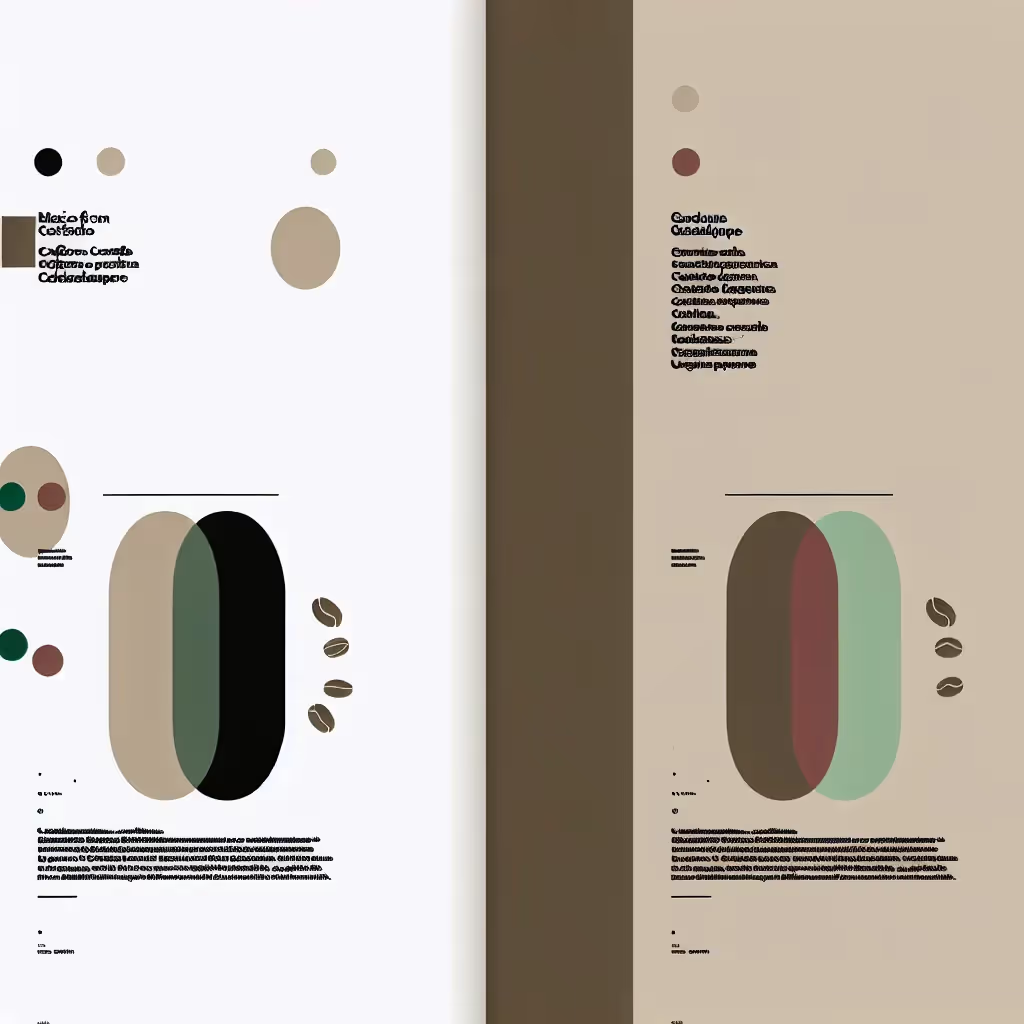Mexican Vs. Cuban Coffee
This comparison explores the distinct qualities of Mexican and Cuban coffee, highlighting their flavor profiles, growing conditions, and cultural significance. Ideal for coffee enthusiasts seeking to understand these unique origins.

Brief Description
Mexican coffee is known for its light body, mild flavor, and bright acidity. Grown primarily in the southern states of Chiapas, Veracruz, and Oaxaca, Mexican coffee benefits from the region's rich volcanic soils and high altitudes. The country's coffee industry has a strong focus on organic and shade-grown practices, resulting in beans that are both environmentally friendly and full of character. Mexican coffee often exhibits nutty, chocolatey notes with a subtle fruitiness, making it a versatile and approachable choice for coffee lovers.
Cuban coffee is renowned for its rich history and unique flavor profile. Grown primarily in the Sierra Maestra Mountains, these beans thrive in the island's tropical climate and fertile soil. Cuban coffee is characterized by its full body, low acidity, and distinctive sweetness, often with notes of tobacco and dark chocolate. Despite facing challenges in production and export, Cuban coffee remains a prized commodity, celebrated for its smooth taste and cultural significance.
Importance of Comparison
Comparing Mexican and Cuban coffee is crucial for coffee lovers looking to expand their palate. These origins offer distinct flavor profiles and brewing experiences, reflecting their unique growing conditions and processing methods. Understanding their differences helps consumers make informed choices based on their taste preferences and brewing equipment.
Key Attributes
Origin
Mexican
Cuban


Consumer Guide
When choosing between Mexican and Cuban coffee, consider your flavor preferences and brewing method. Mexican coffee, with its light body and bright acidity, is ideal for pour-over and cold brew methods. It's perfect for those who enjoy a milder cup with nutty and chocolatey notes. Cuban coffee, known for its full body and low acidity, excels in espresso and Moka pot brewing. It's best for those who prefer a stronger, more intense flavor with tobacco and dark chocolate notes. Consider the annual production as well; Mexican coffee is more widely available, while Cuban coffee may be harder to find due to limited production.
Expert Opinions
Coffee expert Maria Rodriguez notes, 'Mexican coffee's bright acidity and subtle fruitiness make it a versatile choice for various brewing methods.' Cuban coffee specialist Carlos Fernandez adds, 'The unique tobacco notes and full body of Cuban coffee create an unforgettable espresso experience.' Both experts agree that these origins offer distinct flavors that cater to different palates and brewing preferences.
FAQs
Mexican coffee is known for its light body, mild flavor, and bright acidity, with nutty and chocolatey notes. Cuban coffee, on the other hand, has a full body, low acidity, and distinctive sweetness, often featuring tobacco and dark chocolate notes.
Mexican coffee excels in pour-over, drip coffee, and cold brew methods due to its light body and bright acidity. Cuban coffee is best suited for espresso, Moka pot, and French press brewing, which highlight its full body and intense flavors.
Mexican coffee is primarily grown in the southern states of Chiapas, Veracruz, and Oaxaca, benefiting from rich volcanic soils and high altitudes (900-1800m). Cuban coffee is mainly cultivated in the Sierra Maestra Mountains, thriving in a tropical climate and fertile soil at altitudes of 800-1700m.
Yes, there's a substantial difference. Mexico produces around 234,000 metric tons of coffee annually, while Cuba's production is much lower at approximately 20,000 metric tons. This difference affects availability and potentially price in the global market.
Both Mexican and Cuban coffees utilize similar processing methods, including washed, natural, and honey processing. However, the specific techniques and traditions may vary between the two origins, contributing to their unique flavor profiles.
In Mexico, coffee culture is deeply rooted in indigenous traditions and organic farming practices. Cuban coffee, while facing production challenges, holds immense cultural significance, often associated with social gatherings and the country's rich history. Both origins take pride in their coffee as a representation of their cultural heritage.
Conclusion
Mexican and Cuban coffees offer distinct experiences for coffee enthusiasts. Mexican coffee, with its light body, bright acidity, and nutty-chocolatey notes, is perfect for those who prefer a milder, versatile brew. Cuban coffee, boasting a full body, low acidity, and unique tobacco-dark chocolate flavors, caters to those seeking a bolder, more intense cup. Consider your taste preferences, brewing methods, and the availability of beans when choosing between these origins. Whichever you select, both Mexican and Cuban coffees promise a rich, flavorful journey through their unique terroirs and cultural heritage.






